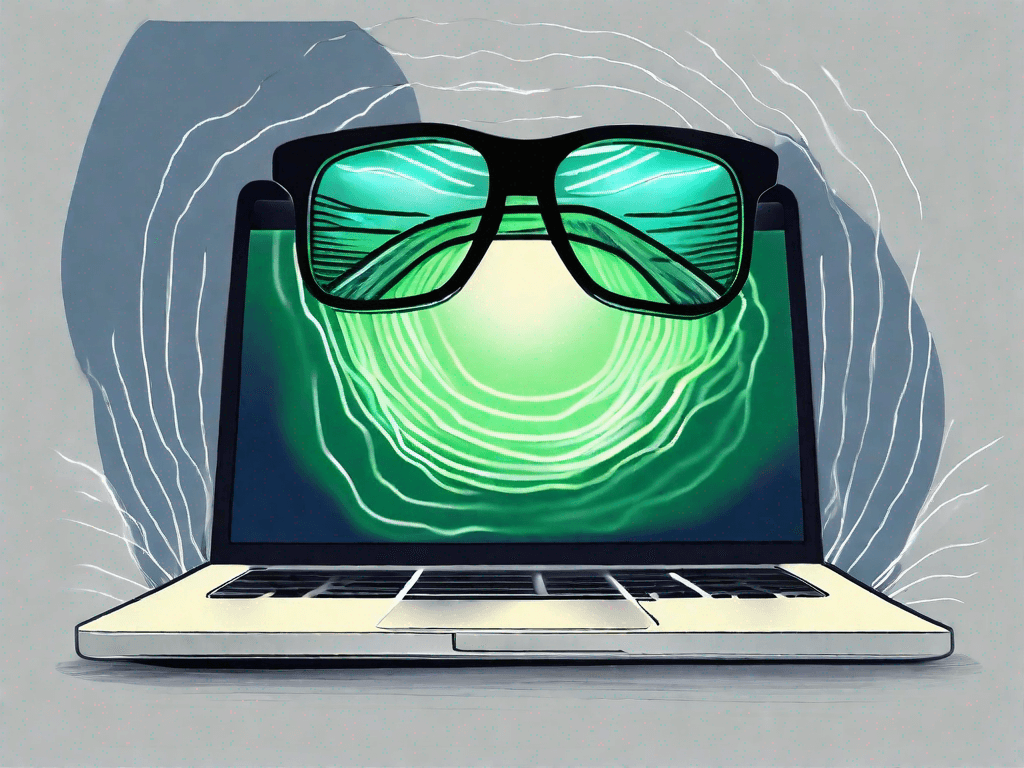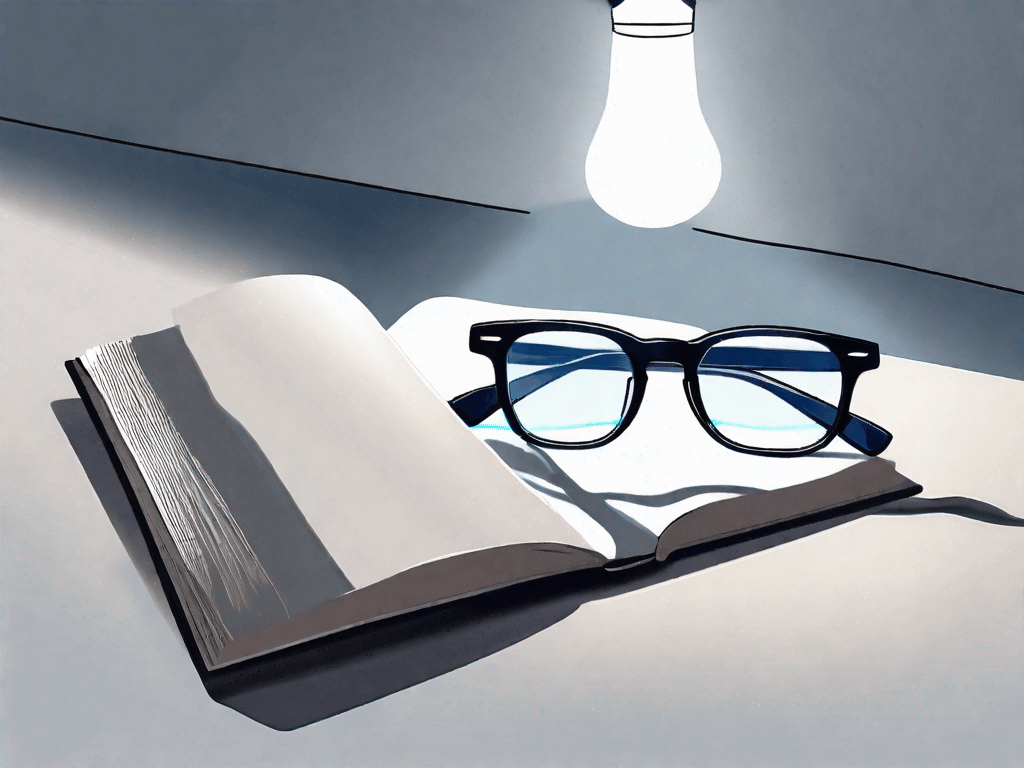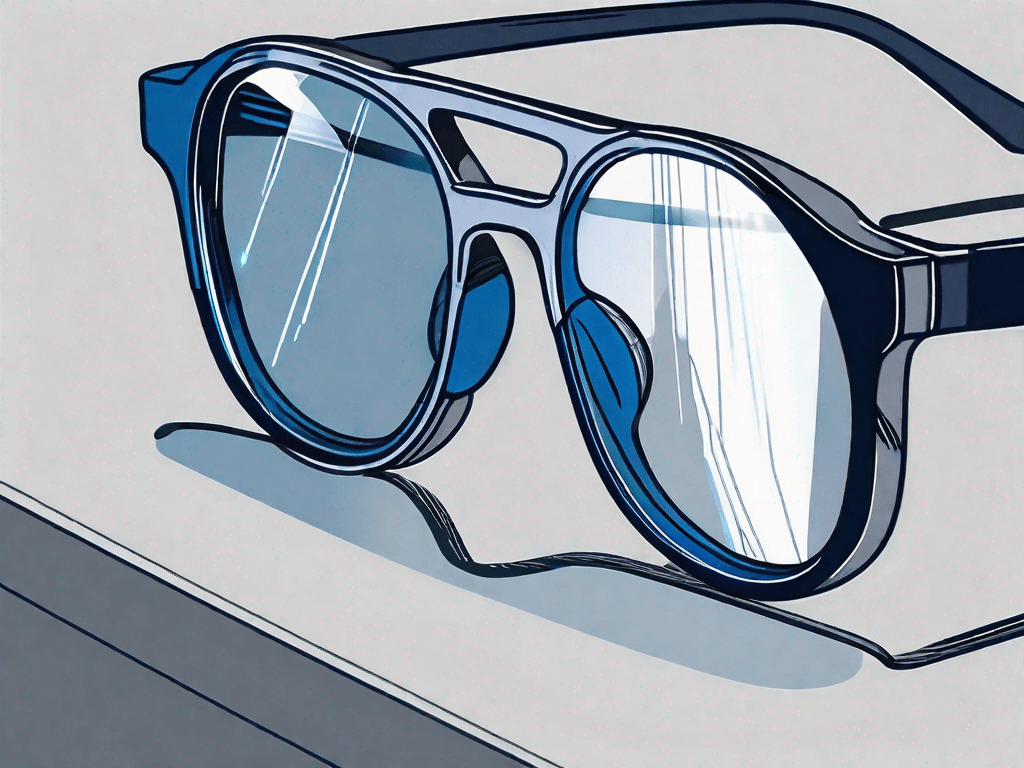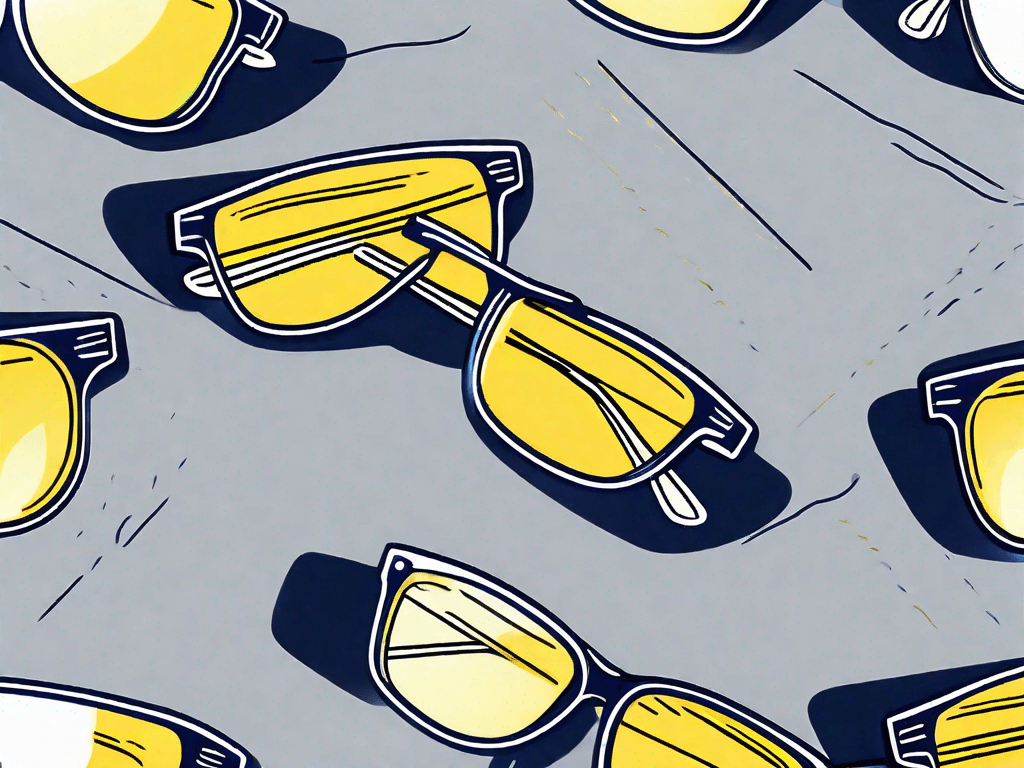The Benefits of Wearing Blue Light Glasses
In today's digital age, we are constantly exposed to screens emitting harmful blue light that can have a negative impact on our eyes and sleep patterns. However, a solution has emerged in the form of blue light glasses. These innovative eyewear options not only protect our eyes from the harmful effects of blue light but also offer a range of other health benefits. In this article, we will delve into the benefits of wearing blue light glasses, exploring the science behind them, the positive impact they have on our health, how to choose the right pair, and dispelling common misconceptions. Let's dive in!
Understanding Blue Light
Before we can truly appreciate the benefits of blue light glasses, it's essential to understand what blue light is and its sources. blue light falls into the visible light spectrum and has a wavelength of approximately 450-550 nanometers. It is emitted by various sources, including smartphones, computers, tablets, and LED lights. Many studies have shown that prolonged exposure to blue light can lead to eye strain, sleep disturbances, and other health problems.
What is Blue Light?
Blue light, also known as high-energy visible (HEV) light, is a type of light that has a shorter wavelength and higher energy than other visible light. It falls in the range of approximately 450-550 nanometers on the electromagnetic spectrum. While some blue light is necessary for regulating our sleep-wake cycle and boosting alertness, excessive exposure to blue light can disrupt these natural processes.
Blue light is a fascinating phenomenon that has captured the attention of scientists and researchers worldwide. It's unique properties make it both beneficial and potentially harmful to human health. By understanding the intricacies of blue light, we can make informed decisions about how to protect ourselves from its negative effects.
Sources of Blue Light
We encounter blue light in our everyday lives, and it comes from a variety of sources. Electronic devices such as smartphones, computers, tablets, and televisions emit significant amounts of blue light. Additionally, LED lights, including those found in homes, offices, and even car headlights, also contribute to our exposure. With the increasing prevalence of these devices, our exposure to blue light has skyrocketed, leading to potential health problems.
It's important to note that not all sources of blue light are created equal. The intensity and duration of exposure can vary significantly depending on the device or light source. For example, smartphones and tablets emit higher levels of blue light compared to traditional incandescent bulbs. This discrepancy in exposure levels underscores the need for protective measures, such as blue light glasses, to mitigate the potential risks.
The Impact of Blue Light on the Eyes
When our eyes are exposed to excessive amounts of blue light, it can have detrimental effects. Prolonged exposure to this type of light can cause digital eye strain, also known as computer vision syndrome. Symptoms of digital eye strain include dry and irritated eyes, blurred vision, headaches, and neck and shoulder pain. Furthermore, blue light can penetrate deep into the eye, potentially damaging the retina over time.
However, it's not all doom and gloom when it comes to blue light. Researchers have also discovered that blue light plays a crucial role in regulating our circadian rhythm, or internal body clock. Exposure to blue light during the day helps us stay alert and awake, while avoiding it in the evening promotes better sleep. This delicate balance between the benefits and risks of blue light highlights the importance of managing our exposure and finding ways to protect our eyes.
Fortunately, advancements in technology have led to the development of blue light glasses. These glasses are designed to filter out a significant portion of blue light, reducing the strain on our eyes and potentially minimizing the associated health risks. By wearing blue light glasses, we can enjoy the benefits of technology without compromising our well-being.
The Science Behind Blue Light Glasses
To combat the negative effects of blue light, researchers have developed blue light glasses. These glasses are specially designed with lenses that filter out a significant portion of blue light while allowing other essential wavelengths to pass through. This filtering mechanism reduces the amount of potentially harmful blue light reaching our eyes, thereby protecting them from the associated health risks.
But how exactly do these blue light glasses work? Let's delve deeper into the science behind them.
How Blue Light Glasses Work
blue light glasses utilize specialized lenses that contain a unique coating capable of absorbing or reflecting blue light. These lenses are engineered to target the specific wavelengths associated with blue light, effectively reducing its transmission to the eyes. By filtering out a portion of blue light, these glasses help alleviate digital eye strain and improve overall visual comfort.
Moreover, the lenses in blue light glasses are designed to selectively filter out harmful blue light while allowing beneficial blue light to pass through. This is important because not all blue light is bad for us. In fact, blue light in the right amounts and at the right time can help regulate our circadian rhythm, boost alertness, and enhance cognitive function.
The Role of Melatonin in Sleep Regulation
One of the key ways in which blue light glasses benefit our health is by regulating our sleep patterns. Exposure to blue light, especially in the evening or at night, can suppress the production of melatonin – a hormone that helps regulate our sleep-wake cycle. This is because blue light, which is emitted by electronic devices and energy-efficient light bulbs, mimics the natural light of the daytime, signaling our brain to stay awake.
By filtering out blue light, these glasses can restore melatonin production and improve sleep quality. This is particularly important in today's digital age, where many of us are exposed to screens and artificial lighting late into the night. Wearing blue light glasses in the evening can help signal to our bodies that it's time to wind down and prepare for restful sleep.
Furthermore, studies have shown that wearing blue light glasses before bedtime can also help reduce the time it takes to fall asleep and improve sleep efficiency. This means that not only do these glasses protect our eyes from the harmful effects of blue light, but they also promote better sleep, leading to improved overall health and well-being.
In conclusion, blue light glasses are a scientific innovation that addresses the negative impacts of blue light on our eyes and sleep patterns. By selectively filtering out harmful blue light while allowing beneficial wavelengths to pass through, these glasses provide a solution to the modern-day challenges posed by excessive screen time and artificial lighting. So, if you find yourself spending long hours in front of screens or struggling with sleep, consider giving blue light glasses a try – your eyes and sleep will thank you!
Health Benefits of Wearing Blue Light Glasses
The advantages of wearing blue light glasses extend beyond protecting our eyes and sleep. Let's explore some of the additional health benefits associated with these powerful eyewear options.
Improved Sleep Quality
One of the most prominent benefits of blue light glasses is their ability to improve sleep quality. By blocking blue light, these glasses promote the natural production of melatonin, which helps regulate our sleep-wake cycle. This, in turn, allows for deeper and more restful sleep, leading to increased energy levels and overall well-being.
When we sleep, our bodies undergo various restorative processes. During deep sleep, our brain waves slow down, and our body repairs and regenerates tissues, strengthens the immune system, and consolidates memories. However, exposure to blue light from electronic devices before bed can disrupt this natural process by suppressing melatonin production. Wearing blue light glasses in the evening helps counteract this effect, allowing our bodies to experience the full benefits of a good night's sleep.
Reduced Eye Strain and Fatigue
Excessive exposure to blue light can lead to eye strain, especially during extended screen time. However, wearing blue light glasses can alleviate these symptoms by reducing the amount of blue light reaching the eyes. By doing so, these glasses help prevent eye strain and combat digital fatigue, allowing us to work and enjoy digital devices comfortably for longer periods.
Our eyes are not naturally equipped to handle the high levels of blue light emitted by electronic devices such as smartphones, tablets, and computers. Prolonged exposure to this light can cause dryness, redness, and irritation, leading to eye strain. Additionally, the constant focusing and refocusing required when looking at screens can further contribute to eye fatigue. By wearing blue light glasses, we create a protective barrier that filters out the harmful light, reducing eye strain and allowing our eyes to relax and function optimally.
Prevention of Age-Related Macular Degeneration
Age-related macular degeneration (AMD) is a leading cause of vision loss among older individuals. Studies have suggested that long-term exposure to blue light may contribute to the development and progression of AMD. By wearing blue light glasses, we can significantly reduce our exposure to this harmful light and potentially lower the risk of developing macular degeneration later in life.
The macula, a small area in the center of the retina, is responsible for our central vision and color perception. Over time, the cells in the macula can become damaged, leading to vision loss. blue light, with its shorter wavelength and higher energy, is particularly harmful to these cells. By wearing blue light glasses, we create a barrier that blocks a significant portion of this harmful light, reducing the strain on our macula and potentially slowing down the progression of AMD.
Furthermore, blue light glasses can also help protect against other eye conditions associated with aging, such as cataracts. By limiting our exposure to blue light, we can take proactive steps to safeguard our long-term eye health and maintain clear vision as we age.
Choosing the Right Blue Light Glasses
With the increasing popularity of blue light glasses, it's essential to know how to choose the right pair that suits your needs. Consider the following factors when looking for the perfect blue light glasses:
Factors to Consider When Buying
- Level of Protection: Look for glasses that offer a high level of blue light protection, ideally blocking around 80-90% of blue light.
- Comfort and Style: Ensure that the glasses fit well and are comfortable to wear for extended periods. Additionally, choose a style that you feel confident in.
- Lens Quality: Opt for lenses made from high-quality materials that provide clear and accurate vision. Consider lenses with an anti-reflective coating to reduce glare.
- Prescription Options: If you require prescription glasses, check if the blue light glasses can be customized to your prescription.
When it comes to protecting your eyes from the harmful effects of blue light, it's crucial to consider multiple factors. The level of protection is one of the most critical aspects to look for in blue light glasses. By choosing glasses that block around 80-90% of blue light, you can ensure that your eyes are shielded from the potentially harmful effects of this type of light.
Comfort and style are also important factors to consider when buying blue light glasses. It's essential to find a pair that fits well and feels comfortable to wear, especially if you plan on using them for extended periods. Additionally, choosing a style that you feel confident in can make wearing blue light glasses a fashionable statement.
Another crucial factor to consider is the quality of the lenses. Opting for lenses made from high-quality materials ensures that you have clear and accurate vision while wearing the glasses. Additionally, lenses with an anti-reflective coating can significantly reduce glare, providing a more comfortable viewing experience.
If you require prescription glasses, it's essential to check if the blue light glasses can be customized to your prescription. This way, you can enjoy the benefits of blue light protection while still having optimal vision correction.
Different Types of Blue Light Glasses
There are several types of blue light glasses available on the market. Some offer standalone glasses designed exclusively for blue light protection, while others combine blue light filtering with prescription lenses or polarized sunglasses. Consider your specific needs and lifestyle when choosing the type that suits you best.
Standalone blue light glasses are an excellent choice if you primarily want to protect your eyes from the harmful effects of blue light. These glasses are specifically designed to filter out blue light, ensuring that your eyes are shielded from its potential negative impact. They are available in various styles and designs, allowing you to find a pair that matches your personal taste.
For those who require prescription glasses, there are blue light glasses available that can be customized to your specific prescription. These glasses offer the same level of blue light protection while providing optimal vision correction. With these glasses, you don't have to compromise between protecting your eyes and having clear vision.
If you enjoy spending time outdoors and want to protect your eyes from both blue light and harmful UV rays, consider blue light glasses that also function as polarized sunglasses. These glasses offer the benefits of blue light filtering while providing the added protection of polarized lenses. They are perfect for activities such as hiking, biking, or simply enjoying a sunny day.
When choosing the right type of blue light glasses, it's essential to consider your specific needs and lifestyle. Whether you need standalone glasses, prescription glasses, or polarized sunglasses, there is a wide range of options available to suit your preferences.
Common Misconceptions About Blue Light Glasses
As with any emerging technology, there are bound to be misconceptions surrounding blue light glasses. Let's debunk some of the most common myths:
Debunking Myths About Blue Light Glasses
Myth: blue light glasses hinder productivity.Fact: On the contrary, these glasses can enhance productivity by reducing eye strain and fatigue, allowing individuals to work comfortably for longer periods without experiencing visual discomfort.
The Truth About Blue Light Glasses and Productivity
Myth: blue light glasses are only beneficial for individuals with pre-existing eye conditions.Fact: blue light glasses are beneficial for anyone who uses digital devices frequently, regardless of whether they have pre-existing eye conditions. They provide protection and alleviate symptoms associated with extended screen time for all users, promoting better eye health for everyone.
The Future of Blue Light Glasses
As technology continues to advance, so too will blue light glasses. Researchers are constantly exploring new ways to improve the effectiveness and comfort of these glasses.
Technological Advances in Blue Light Glasses
One exciting development is the integration of blue light filtering technology directly into electronic device screens. This innovation would eliminate the need for external blue light glasses. Another area of research involves the enhancement of prescription blue light glasses to incorporate a wider range of corrective powers, ensuring that everyone can benefit from the protection offered by these glasses.
The Growing Popularity of Blue Light Glasses
As awareness of the harmful effects of blue light continues to grow, so too does the popularity of blue light glasses. These glasses have become a staple for professionals, students, and anyone else who spends significant time in front of screens. Undoubtedly, the demand for blue light glasses will continue to rise as more individuals realize the importance of prioritizing their eye health in today's digital world.
Conclusion
In conclusion, blue light glasses offer a range of benefits that go beyond simply protecting our eyes. By reducing exposure to blue light, these glasses contribute to improved sleep quality, reduced eye strain and fatigue, and potentially ward off age-related macular degeneration. When choosing blue light glasses, consider factors such as protection level, comfort, lens quality, and prescription options.
Despite common misconceptions, blue light glasses enhance productivity and are beneficial for everyone, not just those with existing eye conditions. As technology advances, we can expect further innovations in blue light glasses, ensuring that they remain a vital tool for safeguarding our eye health. So, why wait? Invest in a pair of blue light glasses today and reap the numerous benefits they offer!





